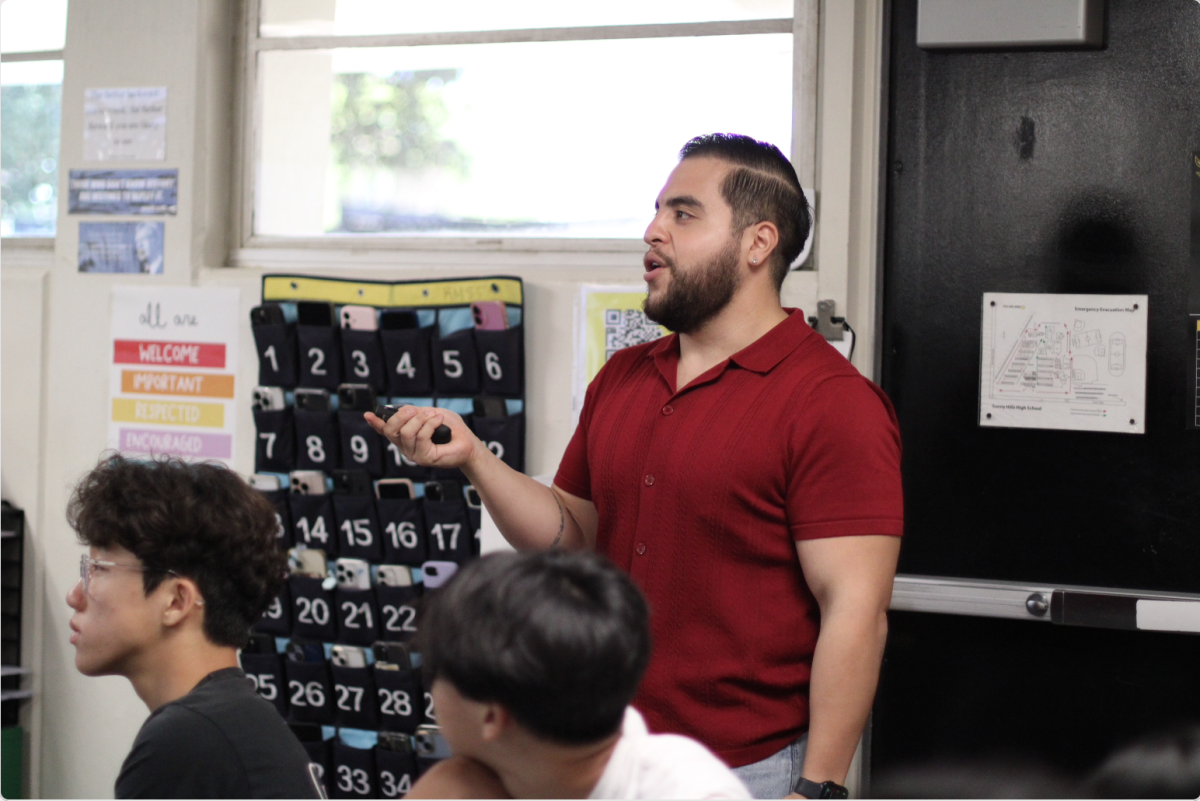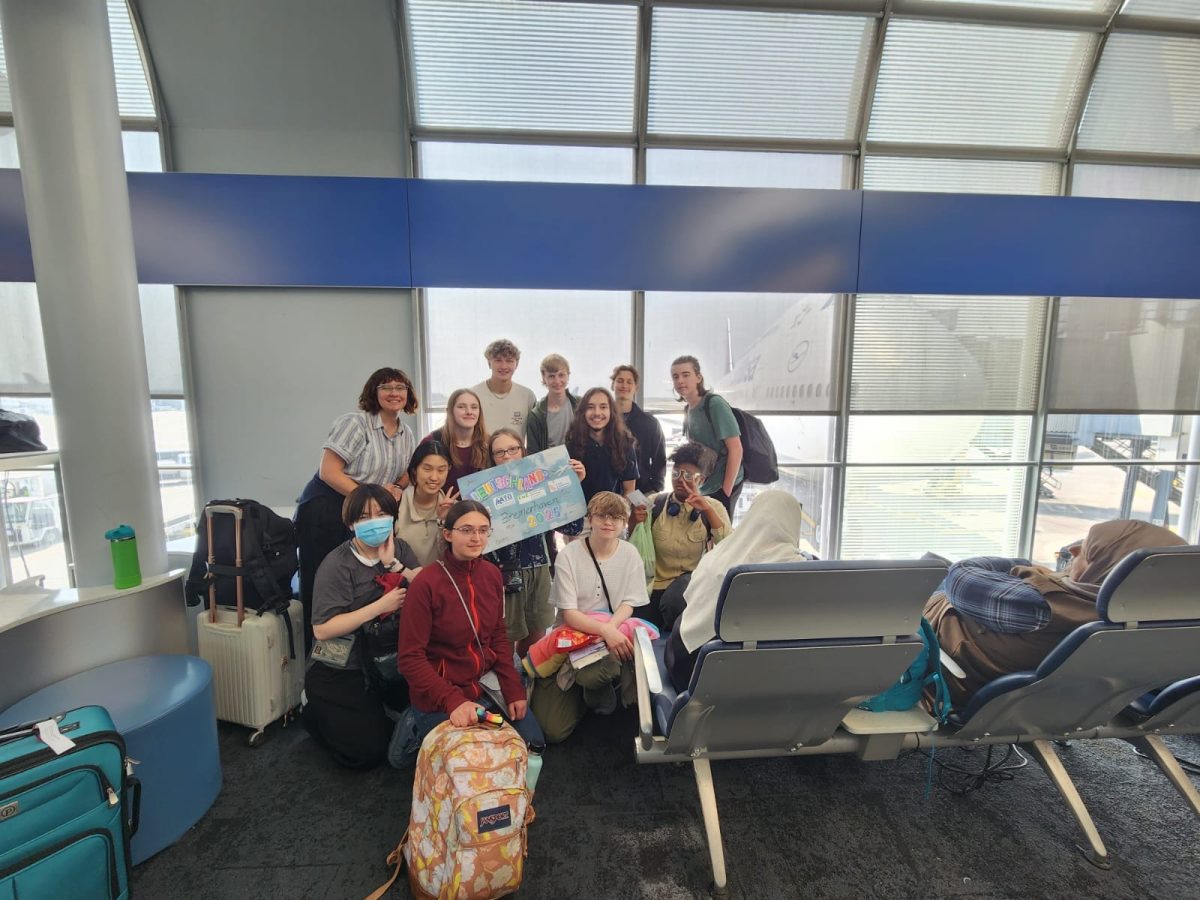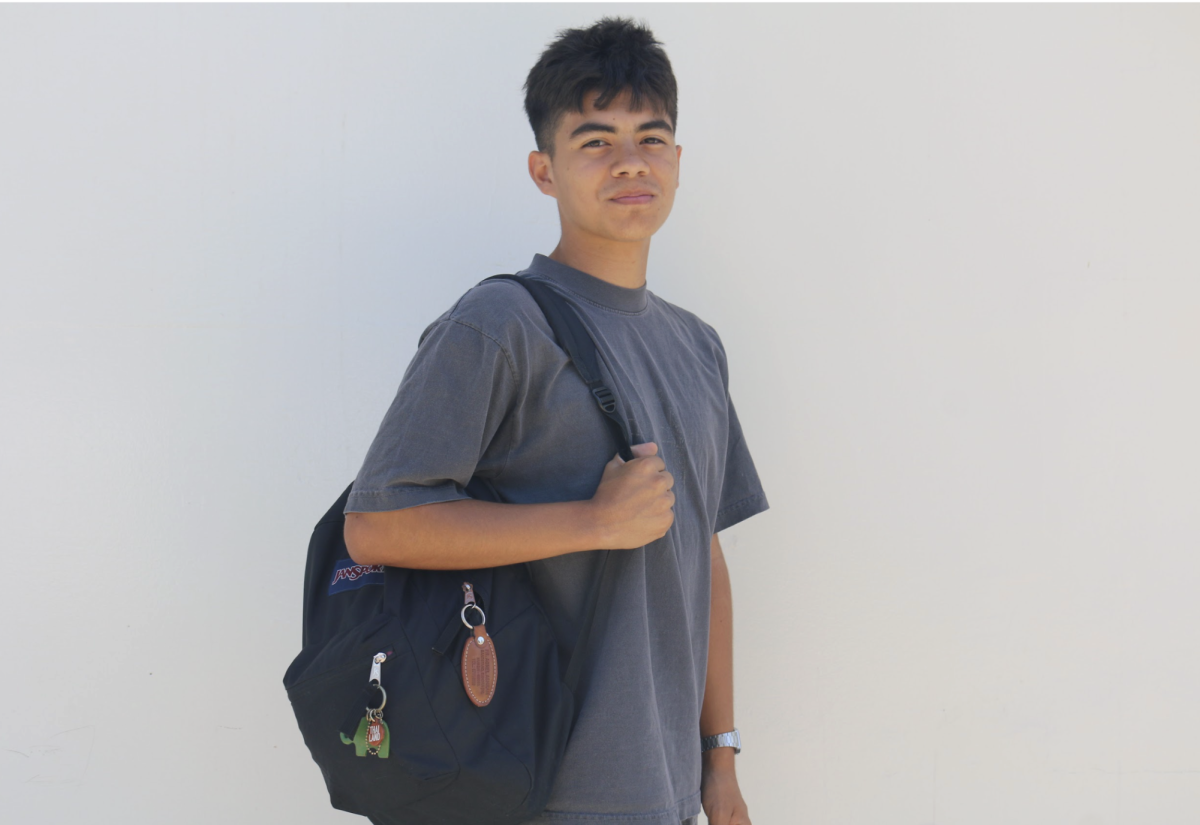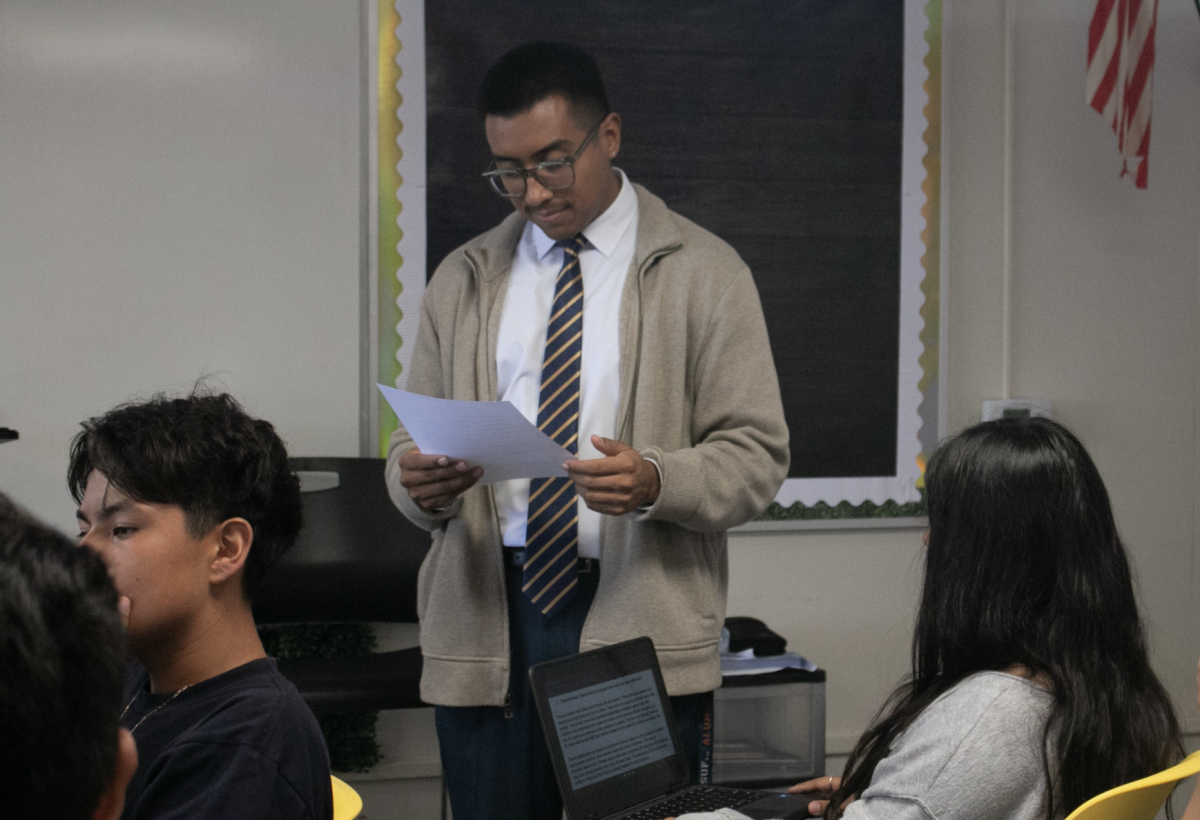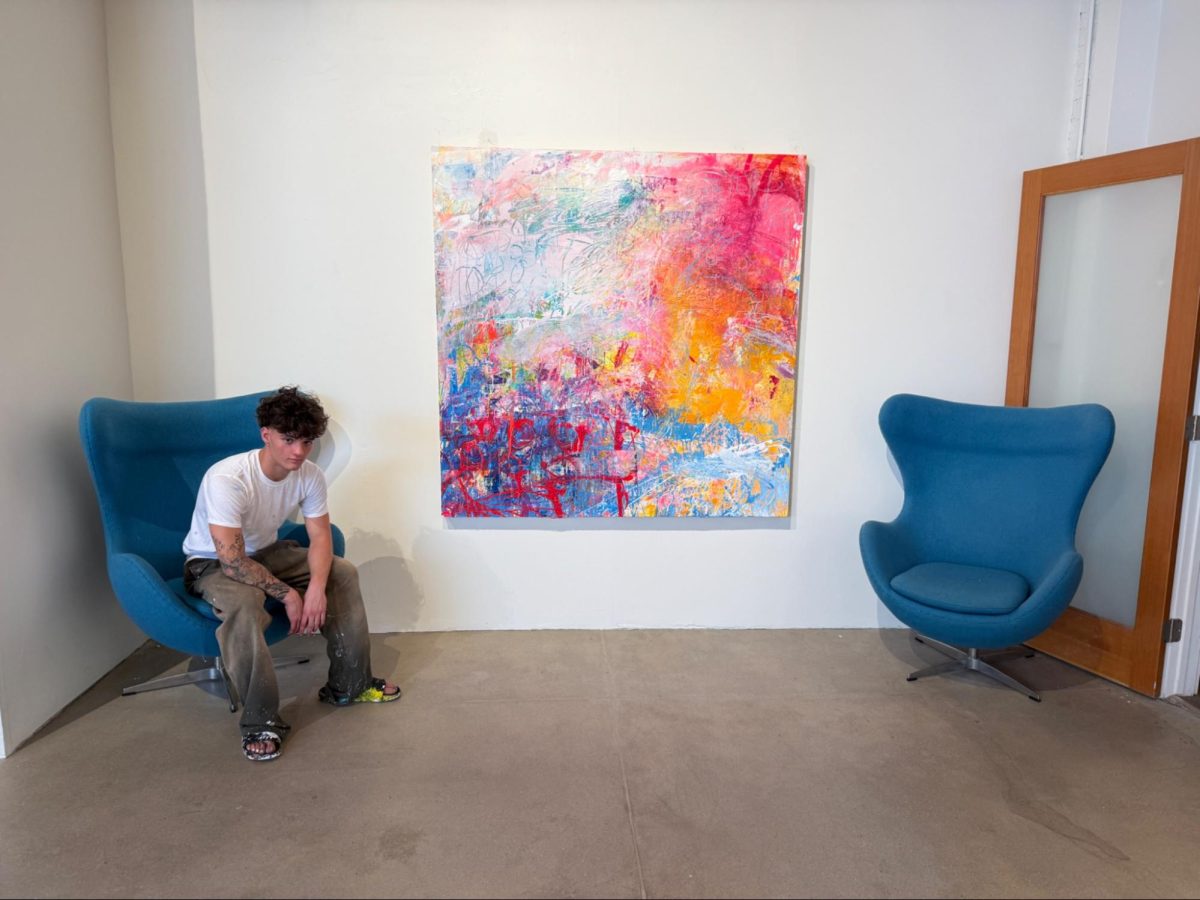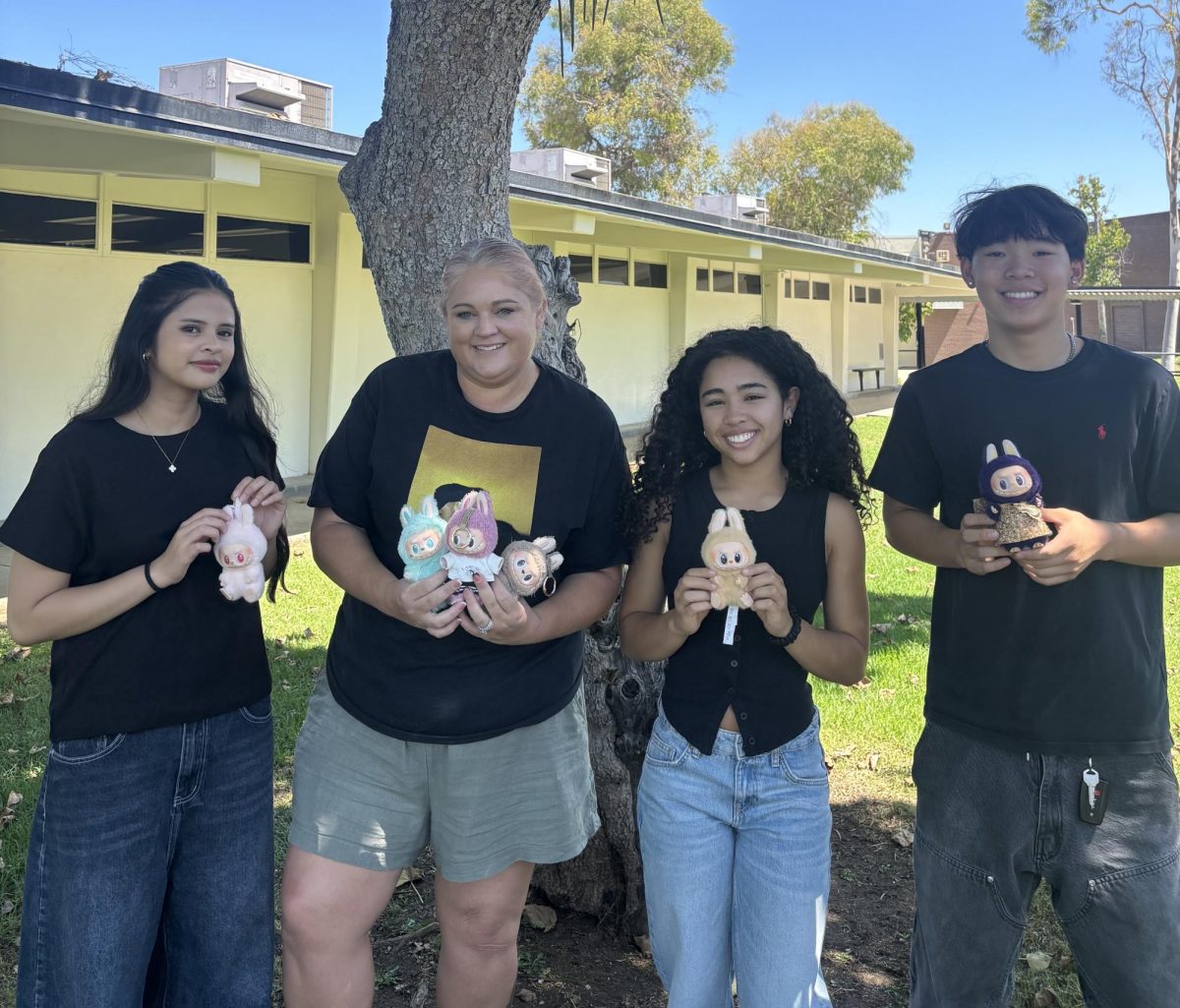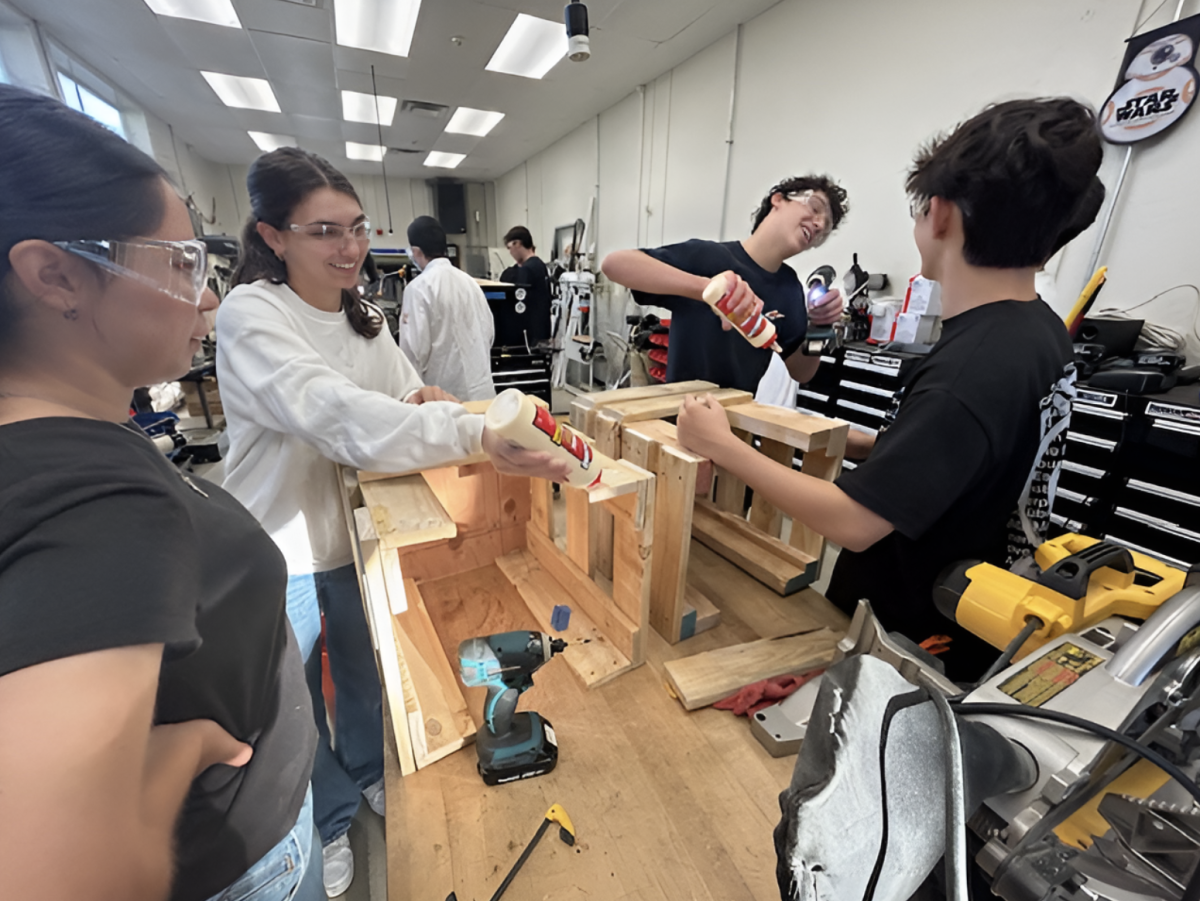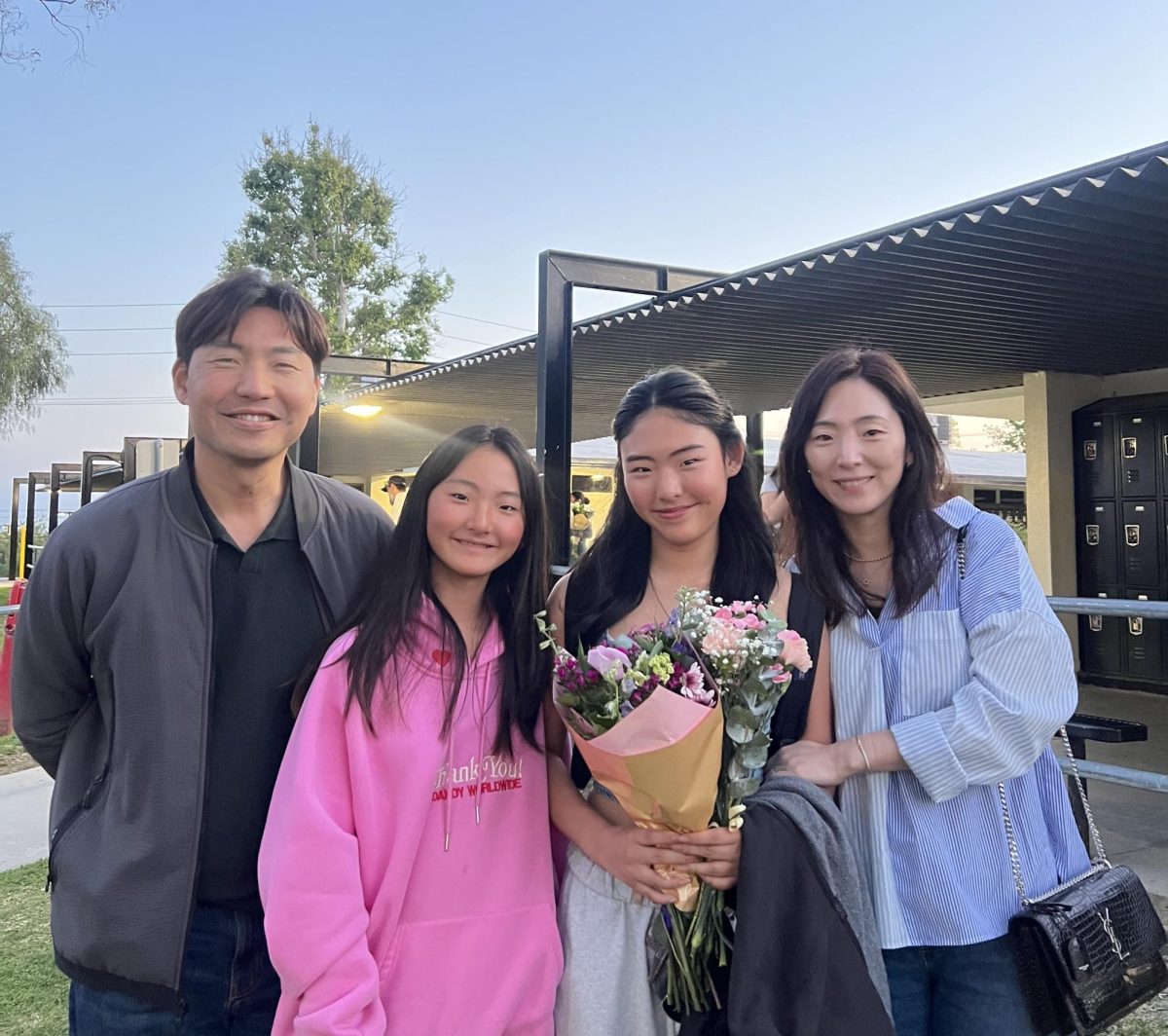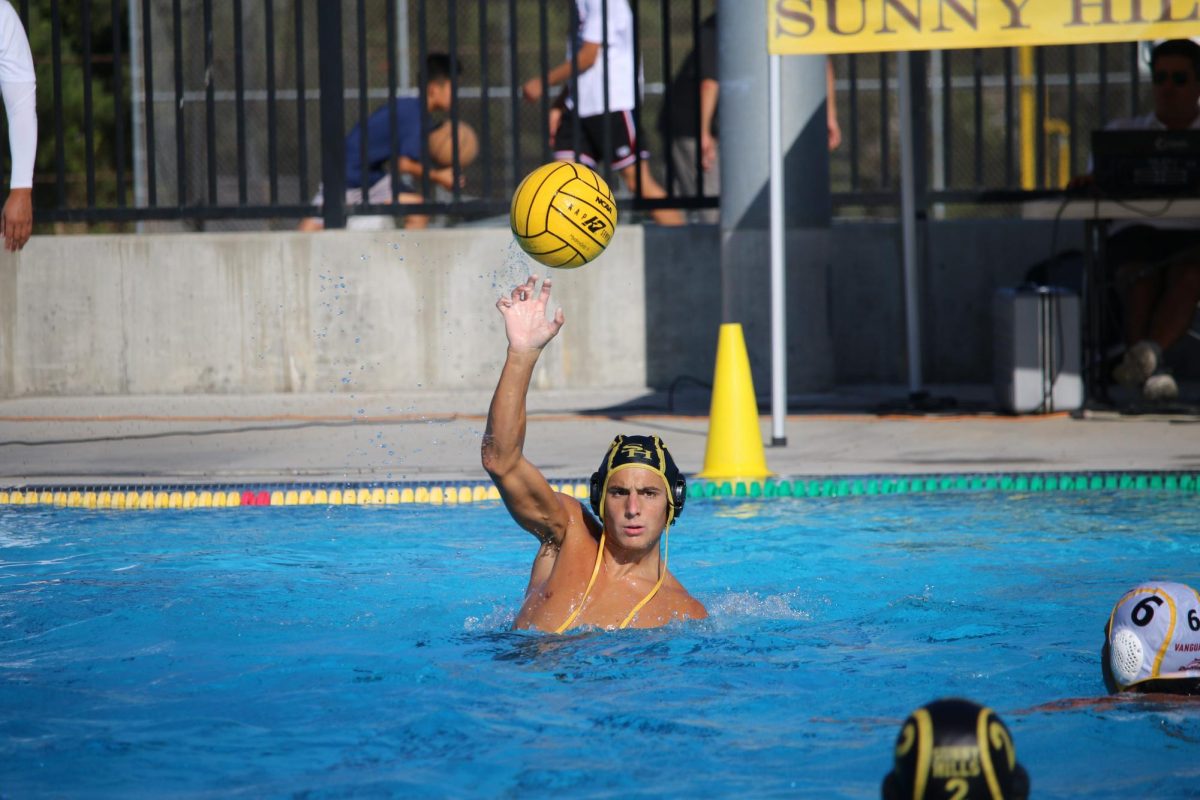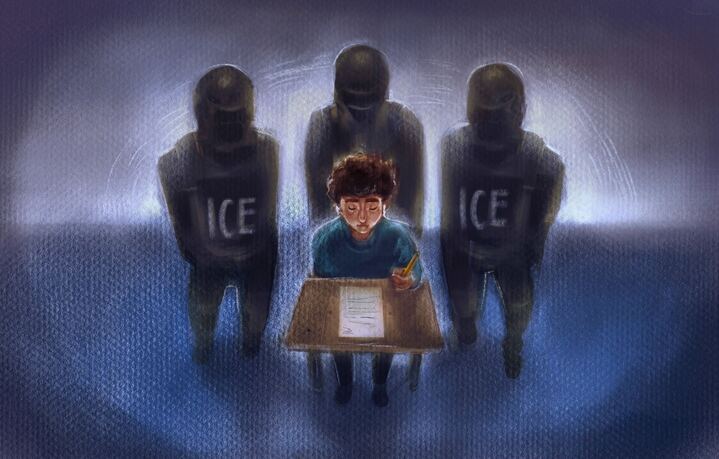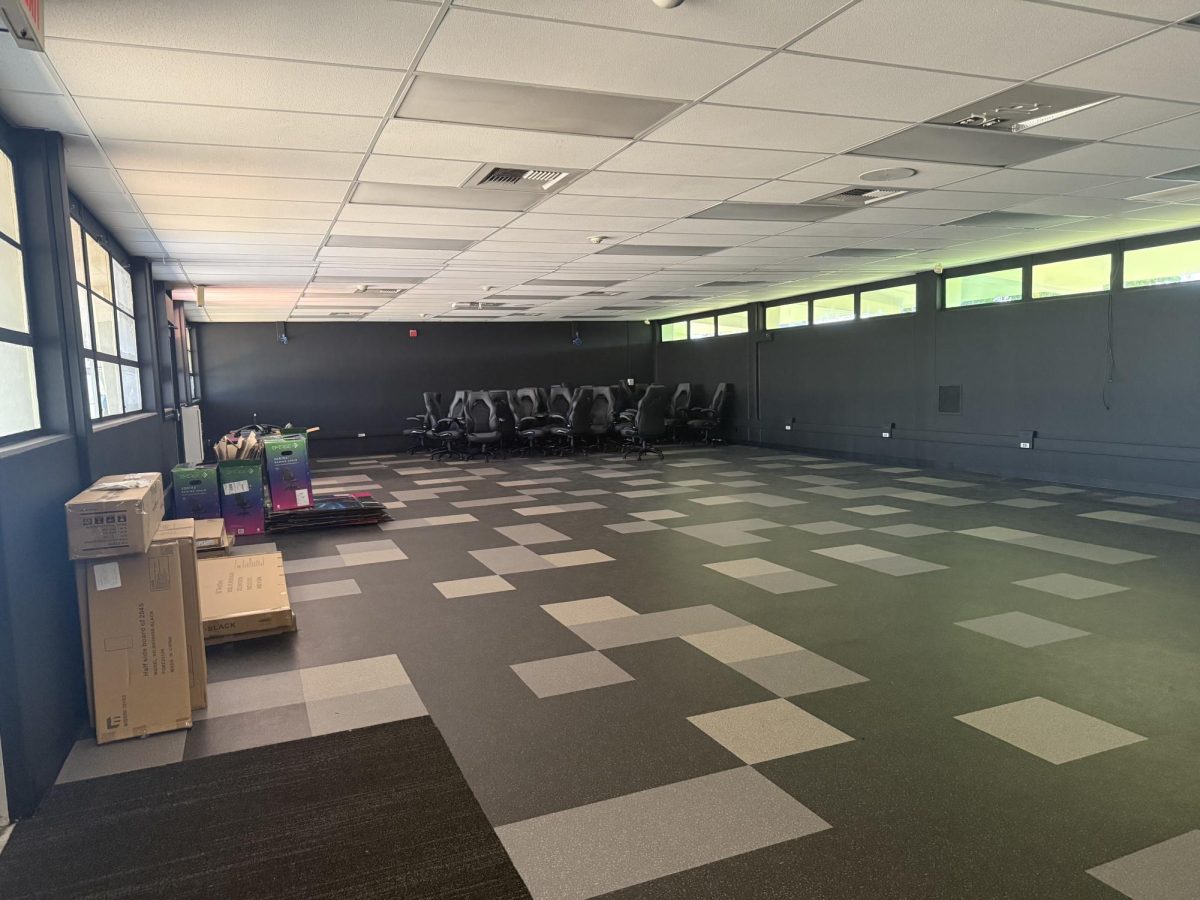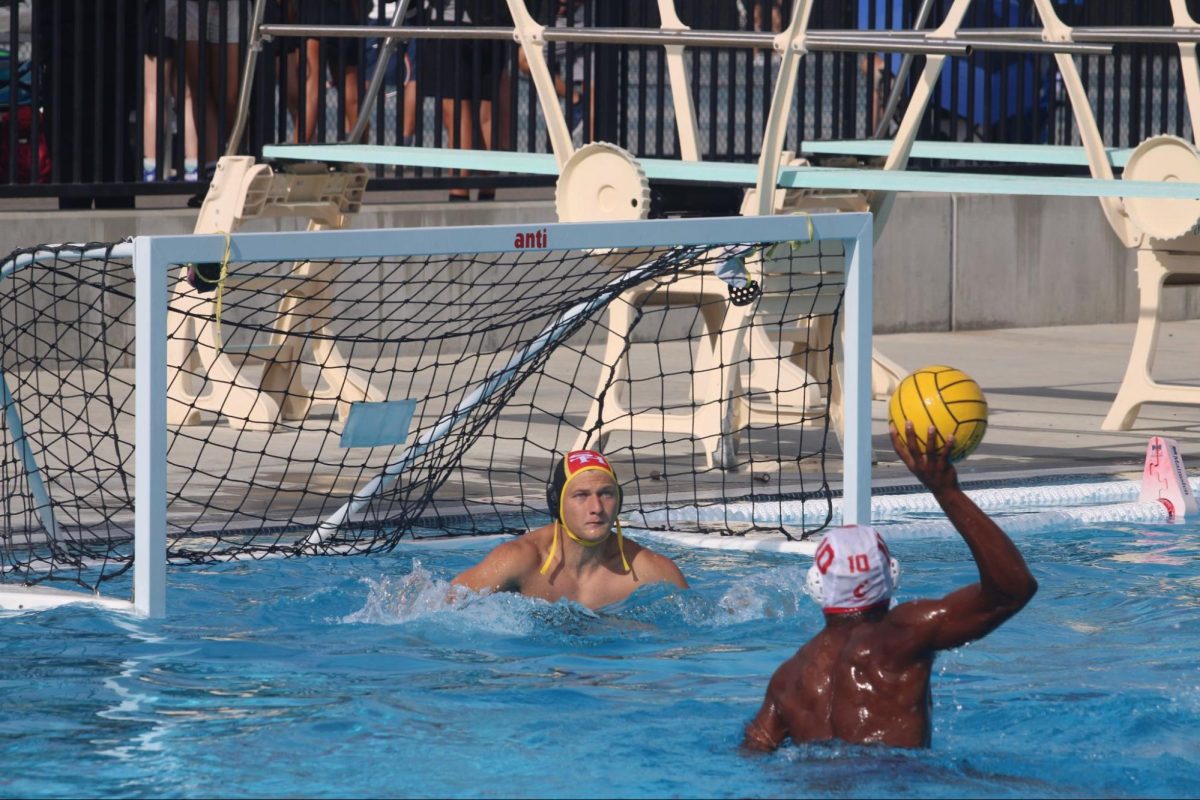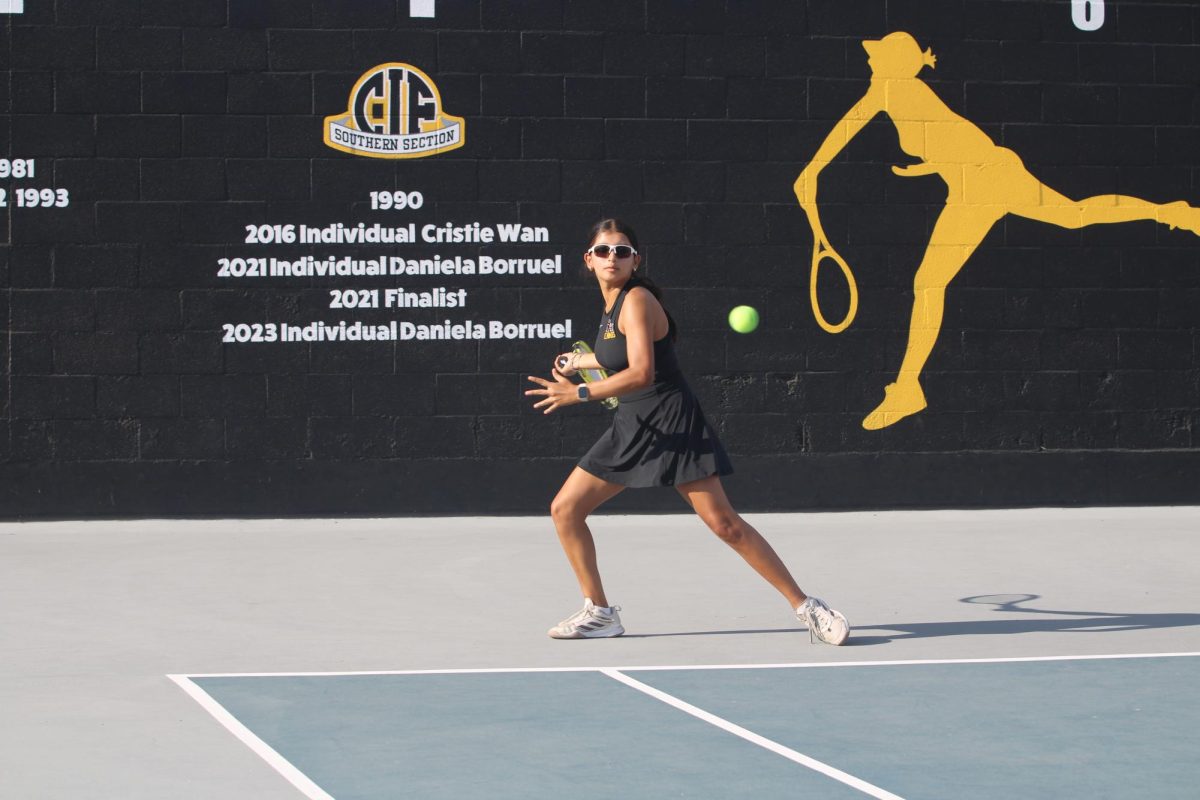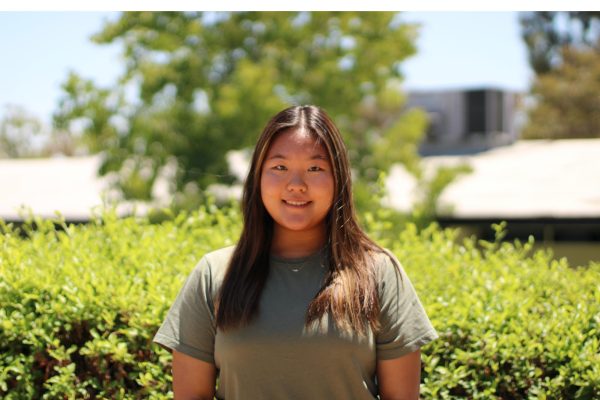When students walk into Room 55, they are greeted with walls that come alive with hundreds of faces staring back.
From 20th-century activists like Martin Luther King Jr. to students attending Sunny Hills, each corner of new social science teacher Carlos Quezada’s class represents his values.
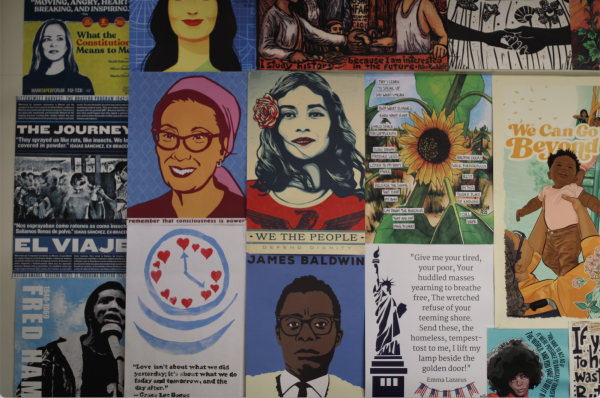
To the left of the door, colorful posters reflecting diverse histories — spanning from Malcolm X to the Brown Berets, a Chicano civil rights group dedicated to social justice — welcome students inside.
The most noticeable decoration is nestled to the right of such posters: a large bulletin board bordered with red, with the title “OUR FAMILIA,” filled with countless photos of students, past and present.
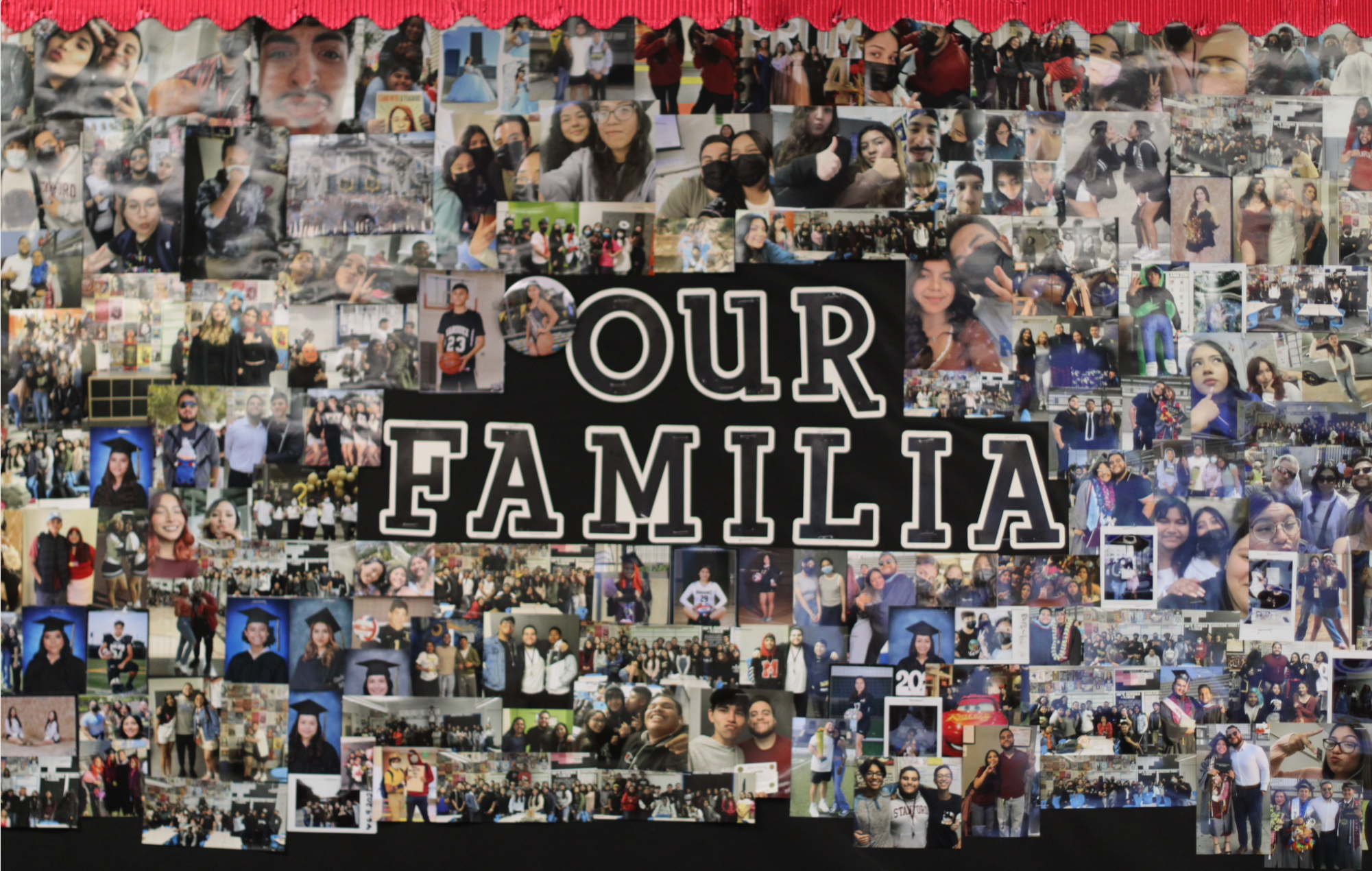
“I really believe that if you don’t know someone that much, it’s harder to trust them,” Quezada said. “So, I do love to put pictures of students in there and watch them grow.
“I think it’s so beautiful; It tells us such a story, but it also reflects my belief that I can’t teach you effectively if you don’t trust me and if you don’t believe that I’ve got your back.”
STARTING FROM HIS ROOTS
As a Fullerton native, Quezada said he spent his high school years playing basketball, a sport that shaped him as a student and person.
“It taught me a lot about time management, discipline, respect and commitment,” said the teacher, who played all positions besides point guard as a two-year varsity player. “I wasn’t necessarily the most talented, but I was always at least the hardest-working one.”
In addition to playing basketball, the new staff member said volunteering at Valencia Park Elementary School in Fullerton for all four years of high school — by helping tutor students and decorate rooms — allowed him to discover an interest in education.
“I just enjoyed working with kids, and I think that definitely set me on the path of doing education because I knew from that experience that I enjoy working with others and teaching and supporting them,” he said.
After graduating Buena Park High School in 2013 as valedictorian, the new social science teacher said he committed to UCLA with his major undecided, but ultimately chose to select biology.
“In terms of that decision to be pre-med, I think it was more so the pressure of prestige and the need for wealth,” said Quezada, the son of low-income immigrants. “So to make sure their sacrifices were not in vain put pressure on me to pick a career that was ‘high income.’”
However, after two years of gruelling science prerequisites, the new teacher said he realized such a path was not meant for him.
“I wasn’t really enjoying myself and enjoying the experiences,” he said. “I was studying all the time, and it was so hard and even if I committed so much time, it was the first time I ever got B’s and a C one time.”
Despite his ultimate decision to pursue pre-med in the early stages of college, Quezada said he remembers holding a special love for history throughout high school.
“I’ve always been pretty good at history, but I also love the way that when you study history, it helps you understand why things are the way they are,” he said. “ I love being investigative and understanding the world around me.”
So, reviving his interest in education and history, the social science teacher changed his course of study to history with a minor in education after his sophomore year, involving himself in community and instructional activities while simultaneously heading to Cypress College to complete prerequisites to take higher-level major courses at UCLA.
Quezada said he joined two clubs — Amigos and Kids Corner — in which he ran tutoring and other programs for North Hollywood and west and east Los Angeles students. He also took low-income students to Disneyland for the first time and even fundraised by selling Porto’s Bakery items on Bruin Walk.
“It was very intense the last two years of college, but I definitely found my footing and my community,” he said. “I really loved that experience, and that kind of developed my passion for everything I do.”
HEADING TO THE FARM
A week after his college graduation in 2017, Quezada said he began a one-and-a-half year master’s program at Stanford University for teaching and social sciences.
“The schedule was really intense,” he said.
While completing his master’s, the social science teacher said he began student teaching at Gunderson High School in San Jose, which was a new and impactful experience for him.
“I taught in a very diverse community, very similar to the demographic of Sunny Hills; I loved it,” Quezada said. “It was stressful managing my classes and teaching, but I enjoyed it.
“Every second of it formed a lot of who I am as a teacher.”
After his student teaching came to an end, the newly hired staff member said he wanted to return to Southern California to help his parents with finances. However, because of his network in the Palo Alto area, he found it harder to find employment.
With a stroke of luck, the teacher said he connected with a Los Angeles Unified School District recruiter in 2018 and received an interview at Libra Academy in Huntington Park, one of three other pilot schools making up Linda Marquez High School.
Following this, Quezada was hired mainly as an Advanced Placement [AP] U.S. History, U.S. History and world history teacher.
“Because of the smaller space, I was really able to build a relationship with my students,” said Quezada, who taught there for seven years.
The new teacher said the biggest lesson he learned when he first started teaching was about trying too hard to achieve excellence.
“I think the biggest thing is, perfection can be a great thing to motivate, but also something that’s very problematic; I was always seeking perfection,” he said. “It can be as great as being ambitious, but also you need to be kind to yourself.”
ARRIVING ON THE HILL
Prior to his eighth year of teaching, Quezada said his former high school teacher informed him of the available positions in the Fullerton Joint Union High School District, following the implementation of the “golden handshake,” an early retirement incentive.
Eager to move closer to home because of the long commute and urge to support his parents, the teacher said he leapt at the opportunity, submitting his application in April 2024.
“I was very nervous; I unsubmitted my application two or three times and just added details and revised,” he said. “I was fortunate enough that they gave me an interview, and turned out there were a lot of people who applied, but it worked out.
“It was hard to leave, but I think it was the right move — I was excited for change.”
So far, Quezada, who is teaching AP Human Geography for periods 2, 3, 4 and 6 and AP United States Government and Politics for fifth period, said he’s enjoyed the shift.
“Students are kind, and the energy is always really nice,” he said. “They’re getting me involved with TikTok videos and all that stuff, so definitely feeling like I’m part of the community, or becoming part of the community.”
Just like he did at his previous school, Quezada hopes to create a safe space for the new inclusions to his “familia.”
“I want to make sure that kids feel supported and welcomed and safe in my class; I think one of my professional goals that I wrote down is, I want to build a positive community, positive culture,” he said. “I want to make sure that students are building social skills, especially because I have freshmen, so their ability to work with others regardless of who they are, their ability to be respectful to one another.”
Senior Francess Pak, who has Quezada for fifth period AP United States Government and Politics, said one of her favorite aspects of the class is “Student of the Week.”
Each week, Quezada would pick a student to recognize, offering them snacks and a phone call or email home.
“I think it’s pretty cool because I feel like teachers don’t do that much anymore, and so it’s really nice to have that positive reinforcement,” Pak said.
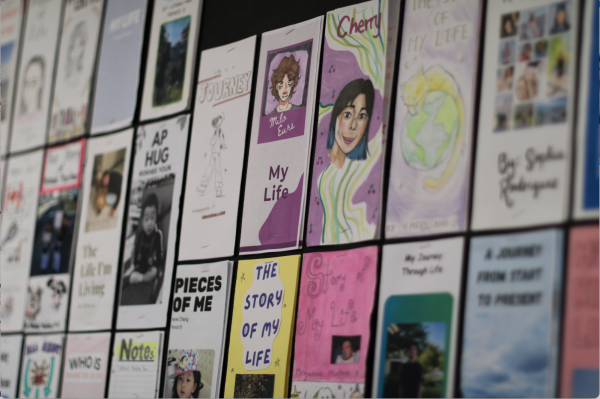
Principal Craig Weinreich attributed the new teacher’s infectious energy to the reason for his hire.
“He came across [as] very enthusiastic, very knowledgeable and someone that is willing to do anything to help his students learn,” said Weinreich, who also said the retirements of former social science teachers Robert Bradburn, Del Crognale and Jeff Gordon played a role in this decision. “You could just tell from talking with him, initially, that he really cares a lot about what he’s doing; he loves teaching, and he loves being in the classroom, and that’s what we want.”
Senior Rielynn Brimmer in Quezada’s government class appreciates his high energy.
“Out of all teachers, I feel like he’s super happy and an exciting guy,” Brimmer said. “That’s why I get excited to go to his class; his energy makes me want to actually be involved in the work he gives us.”
Similarly, freshman Jalon Lomheim, a student in Quezada’s second period AP Human Geography class, said he values his attempts to create relationships with students.
“He’s just awesome because he kind of connects with us, and that’s what I really like about him,” Lomheim said.
The social science teacher said his teaching philosophy is to assist all students to the best of his abilities.
“I think the first thing that comes to mind is the importance of supporting every kid, no matter who they are, no matter what they look like,” he said. “I’m really big on like social justice and equity and equality and fairness and justice; I think I try to ground my teaching in that, in the way that I treat kids, in a way that I connect with kids.”



